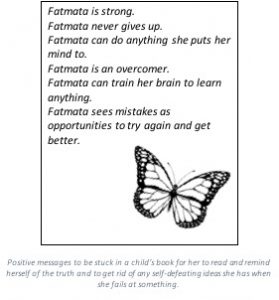How are you promoting well-being, health and happiness in your classrooms?
How are you promoting well-being, health and happiness in your classrooms?
Contribution to The Global Teacher Series 2018
The Battle For The Mind
Physical and emotional safety are usually pre-requisites to us being willing to take risks. Risk-taking is usually a pre-requisite for trial and error leading to healthy growth and development. As a kid, I remember my headmaster father talking about how revealing it could be of how secure a child’s home situation was when looking at how happily a child left home to go on a school field trip. In general, he seemed to find that those who had a safe and stable place to go back to felt secure enough to take the risk of leaving home for a week, knowing things would be fine when they got back. In contrast, his experience was that children coming from less stability were far more concerned about leaving home even for a few days. Translating this forward now and to a very different context, I often find myself talking to teachers about creating a safe classroom environment for risk-taking and supporting young people to have self-messages that they can use when they fear failure or face some challenge that they feel is insurmountable.
 Our young people often come from backgrounds that are everything but not safe or stable. There have been anxiety making traumas and experiences of deprivation and loss, so the creation of a safe environment in which these youngsters can flourish and thrive is crucial. Feeling loved and part of a community is key. We talk all the time about the power of love and our motto is the Augustinian saying, ‘Love and Do As You Will!’ but we are realising more recently that there is also a personal battle to be had, for control of the mind.
Our young people often come from backgrounds that are everything but not safe or stable. There have been anxiety making traumas and experiences of deprivation and loss, so the creation of a safe environment in which these youngsters can flourish and thrive is crucial. Feeling loved and part of a community is key. We talk all the time about the power of love and our motto is the Augustinian saying, ‘Love and Do As You Will!’ but we are realising more recently that there is also a personal battle to be had, for control of the mind.
This year, EducAid has been focusing on encouraging staff and students to develop a ‘growth mindset’. Carol Dweck’s fantastic work on growth versus fixed mindsets (Dweck, 2006) and Matthew Syed’s inspirational podcast ‘Does Talent Trump Effort?’ (Syed, 2012) have helped us develop our thinking. Our fees for a long time have been ‘Excellent Attendance, Excellent Behaviour and Excellent Effort,’ (affordable by even the poorest) but now we are more consciously celebrating the hard-working and not just those that drift to the top of the class effortlessly but who will top out and get left behind when they are met with an unfamiliar challenge. Each term EducAid now rewards the most improved students and those making the most effort. Children are celebrated more for their efforts than their actual grade. The realisation that controlling what messages are allowed air-time in one’s head and getting rid of the thoughts that are destructive is a crucial one for the development of resilience. Resilience is one of the most useful transferrable attitudes and the ability to overcome one’s negative thinking is one of the most useful transferrable skills. Resilience acquired in one domain can be taken into any other area. I can learn from the fact that I had to keep getting back on my bike in order master cycling. I can take that experience into dealing with my fractions or my irregular verbs. I need to keep ‘getting back on’ when I fall off until I have mastered the skill, whatever it is.
These are some of the tricks we have started using and are finding helpful:

- Posters around the school with positive growth mindset messages
- Comments in exercise books that praise effort more than talent
- Rewarding effort in prize giving ceremonies and weekly assemblies
- Writing positive self-messages in a child’s book for them to read to themselves at times of disappointment
Love and a growth mindset: Powerful tools for promoting well-being, health and happiness!
If you are in a position to support EducAid’s work with vulnerable young Sierra Leoneans, please follow this link: https://www.educaid.org.uk/get-involved/
If you would like to know more about our work, please go to: https://www.educaid.org.uk/
References:
Dweck, C. S. (2006). Mindset: how you can fulfil your potential. London: Constable & Robinson Ltd.
Syed, M. (2012). Does Talent Trump Effort? London: BBC Radio 4. Retrieved from http://www.bbc.co.uk/programmes/b01h75df